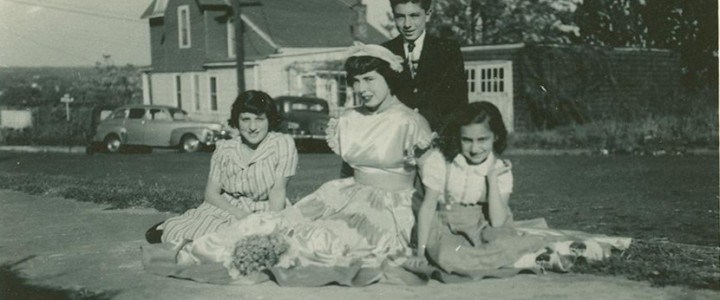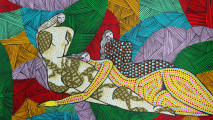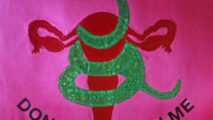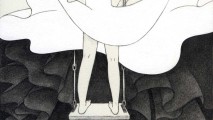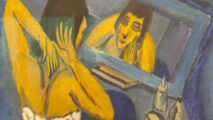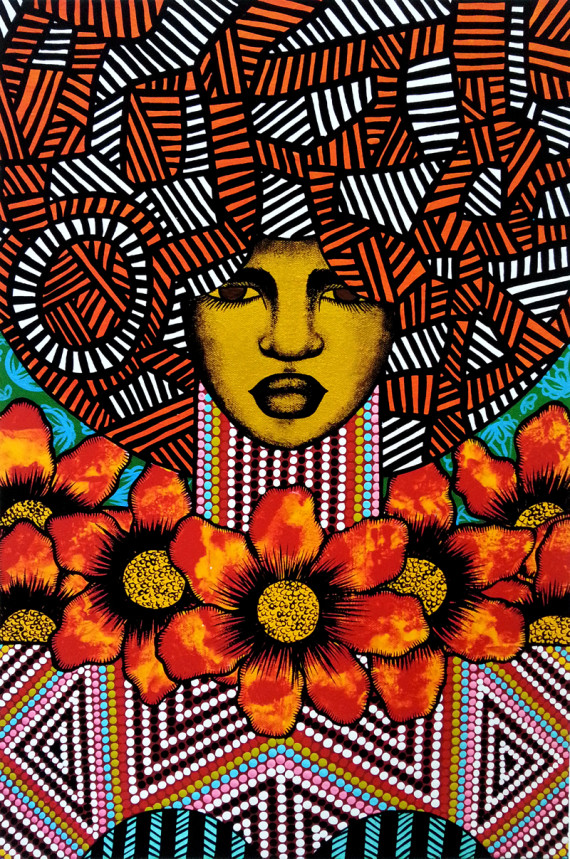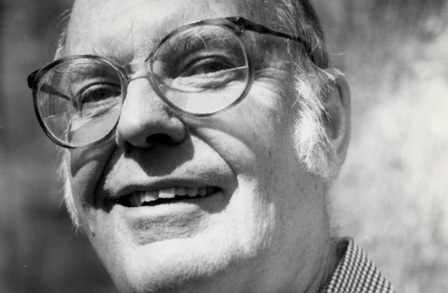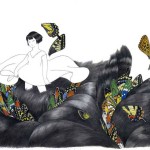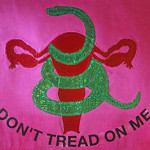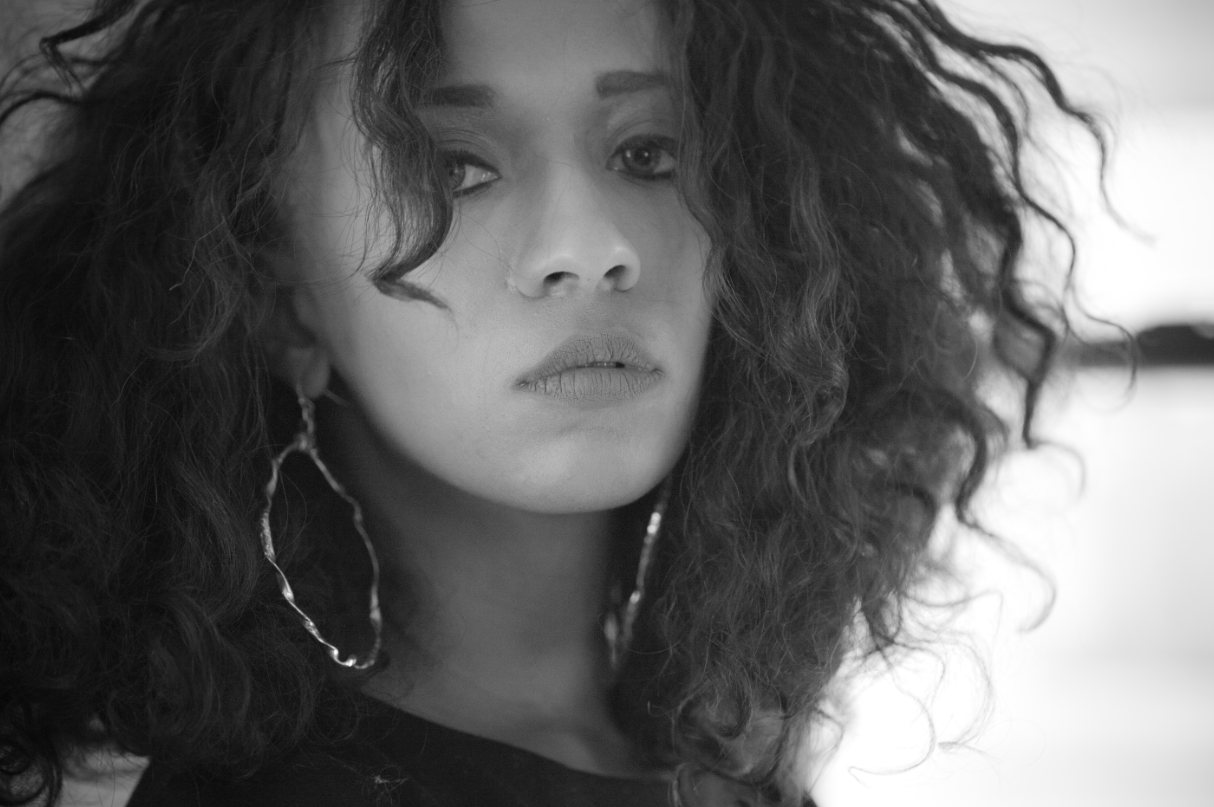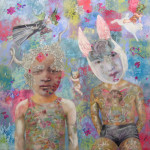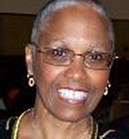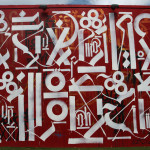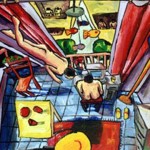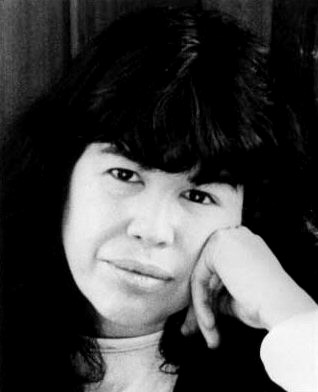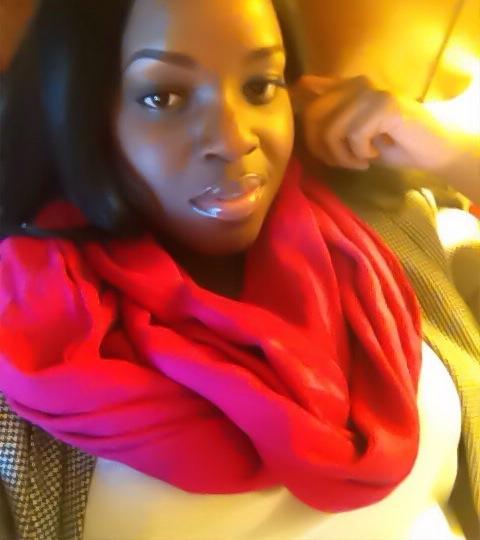…were all wrong. I have always had a disastrous sense
of style, and even when I followed Seventeen magazine
like a religion, I didn’t know what would work on my slender,
awkward body—all elbows and knees so I wore clothes
I thought were preppy—gray flannel wool skirts
and oxford cloth blouses and bobby socks and saddle shoes.
They looked wonderful on the models in Seventeen;
unfortunately I had thick, curly dark hair that stuck out
from my head so it looked like the beautician had deliberately
formed it into a triangle that swallowed my long skinny face,
my big sad eyes. I looked like what I was,
a girl who did not speak English when she first went to school, a foreign girl—
and all the preppy clothes in the world could not change me
into this person I wished I was, the upper middle class girl
who lived in a big white colonial house, all graceful lines
and not in a tenement on 19th street that faced the brick
windowless wall of Warner Piece Dye Works. The people
in Seventeen Magazine would never have lived in a house
like ours–with its small kitchen, its old broken down bathroom
with its claw-footed tub, right off the kitchen, one large room
that held the sofa bed in which my brother slept
and a dining room table and chairs. Two tiny bedrooms, barely
large enough for a three-quarter bed, opened off this room,
and on one end another door led to the living room
with a cheap living room suite—a sofa and two chairs,
a living room which we rarely used. It was meant for company,
but really all our company, my honorary aunts and uncles
and cousins, came to the back door. We all gathered
at the dining room table—the adults playing cards
and talking and drinking espresso
and the children sitting on the sofa bed or playing games
on the linoleum floor. In high school, I was in alpha classes,
those classes meant for smart students, classes filled
with upper middle class girls with their expensive felt poodle
skirts and cashmere sweaters in pastel colors
and leather penny loafers. In those classes I learned to love
the sound of poetry read aloud, love the novels we read,
but then I also learned that an enormous distance separated
me from the other alpha class girls who came in on Monday
mornings to talk about the parties they’d gone to or given
in the finished basements of their big houses in the Eastside
section where the factory owners and professionals all lived:
I’d hear them whispering together about the parties
to which I was never invited. I must have seemed so strange
to them in my inexpensive clothes that tried to pretend
they were the real thing and my cheap haircut and my big nose.
I never spoke to anyone in the class but when Miss Durbin
called on me to read a poem aloud, I so loved the words,
sweet as a peach in my mouth, that the girls and their parties
vanished and I was left holding poems in my hand,
feeling them rise off the page as I read, and Miss Durban smiled.
How fortunate I was that she always asked me to read how
fortunate that she knew I was an outsider, knew I loved
the poems as much as she did, that when I read them aloud,
I could see the words lifting off toward the plaster ceiling
like birds with glittering wings.
Maria Mazziotti Gillan is a recipient of the 2011 Barnes & Noble Writers for Writers Award from Poets & Writers, and the 2008 American Book Award for her book, All That Lies Between Us (Guernica Editions). She is the Founder/Executive Director of the Poetry Center at Passaic County Community College in Paterson, NJ, and editor of the Paterson Literary Review. She is also Director of the Creative Writing Program and Professor of Poetry at Binghamton University-SUNY. She has published sixteen books, including What We Pass On: Collected Poems 1980-2009 (Guernica Editions), THE PLACE I CALL HOME (NYQ Books, 2012), THE SILENCE IN AN EMPTY HOUSE (NYQ Books, 2013) and Writing Poetry to Save Your Life: How to Find the Courage to Tell Your Stories (MiroLand, Guernica). With her daughter, Jennifer, she is co-editor of four anthologies.…
Related Posts
« LET ME STRADDLE YOUR MIND – The Art of Michelle Robinson Two Poems — Paul Genega »
